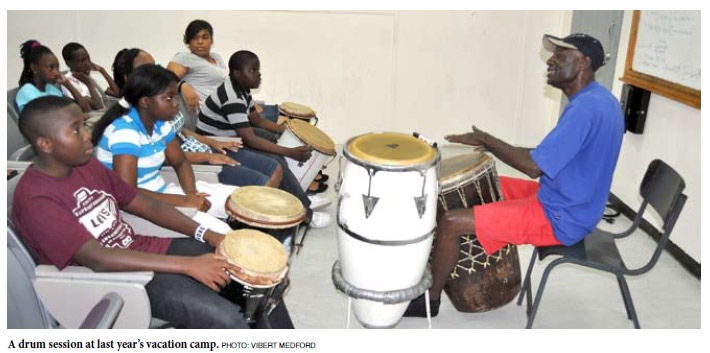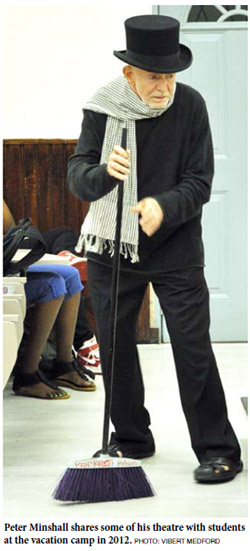|
Januray 2013

Issue Home >>
|


“The name birdsong was chosen because the intention was to make music as sweet as the songs of birds and as with the songs of birds, different birds could be singing at the same time but the overall effect is harmonious music – no individual is more important than the other. And so, lowercase to underscore that all are equal, all have the same weight. All have a valid voice.” – Amanda Joseph.
When the birdsong Academy was set up in 2004, it was another step in the vision of creating a global brand of music excellence that the organisation had set itself when it was founded 40 years ago. Then, a group of mainly UWI students and staff, idealistic and full of seventies’ fire had come together to make a difference through pan.
The Academy came to be with a solemn mandate to empower the next generation, and to this end, decided it would accept students from 11 to 18 years old. Its focus, while being the development of musicianship, would be constructed on platforms that nurtured development: life skills, counselling on social, academic and economic issues, leadership grooming and so on.
 Eight years later, its diary is impressive. From September to June, the Saturday programme runs from 8.30am to 4.30pm (and the five-week vacation programme had 80 students last year). Every June, every October, students do the Associated Boards of the Royal Schools of Music Theory and Practical examinations. Eight years later, its diary is impressive. From September to June, the Saturday programme runs from 8.30am to 4.30pm (and the five-week vacation programme had 80 students last year). Every June, every October, students do the Associated Boards of the Royal Schools of Music Theory and Practical examinations.
Last year, they put on performances at both Divali and Christmas time, and this year, Andy Narell will be arranging his composition, “The Last Word,” for Panorama. On June 22, they are having a scholarship benefit concert at NAPA, and a closing concert on August 10 at Queen’s Hall.
The not-for-profit company, birdsong, with its 16-member board (chaired by UWI Prof Clement Imbert), actually has three distinct thrusts. One is the birdsong Steel Orchestra which brings the music and entertainment; another is the Academy and the third is the social enterprises that have been agents of income and employment.
In 2002, using a business model with a board, they registered their Daily Environmental Services Ltd as a company and provided just that to a range of customers. In 2011, a similar company, bEnt was formed and the plan for this 40th year is to set up another with a different focus: food. With their eyes on ten acres at Orange Grove, the plan is for birdsong Agricultural Investments Ltd (bAgi) to get involved in agronomy and to continue the training along the lines of managing small businesses like farms.
Dennis Phillip, an economist of many parts, is one of the founding members who is on the current board, and has been mainly responsible for the Academy. Apart from trying to raise funds and secure partnerships, he has been devising and implementing the programmes that seek to expose the youngsters to the world of possibility and to give them the skills to inhabit it. Two of their students are currently abroad on scholarships. Being at birdsong, he says, opens their minds to possibilities because of the range of their exposure and the nurturing and encouragement they receive. Even so, he says, it is still difficult for them to believe that they can step outside of the parameters their environments have imposed; but still, lives have been changed.
Amanda Joseph, another board member, says the Academy is like a second home for some who live in challenging circumstances. Here, they can experience what it feels like to be good at something. One of the assistant tutors told her that the vacation camp he’d attended when he was 15 saved him from just “gambling on the block.” Another who was not doing well at school, was so determined and dedicated that he is now a member of the Fire Services Band.
Another student’s schoolwork was slipping through excessive Facebooking, she says. “We were able, with their parents, to mandate an improvement in behaviour and grades as a condition of continued enrolment in the Academy; grades were up at the end of the next term and his parents were pleased to say he was behaving more politely at home.”
“A consequence of having a free music education programme is that young people who would probably never meet, come together as equals to learn and make music and it is the very democratic measures of hard work, dedication, discipline and responsibility that determine who succeeds and advances. That they make friends despite different economic, social and academic circumstances is an added bonus,” she said.
by: Vaneisa Baksh
|





